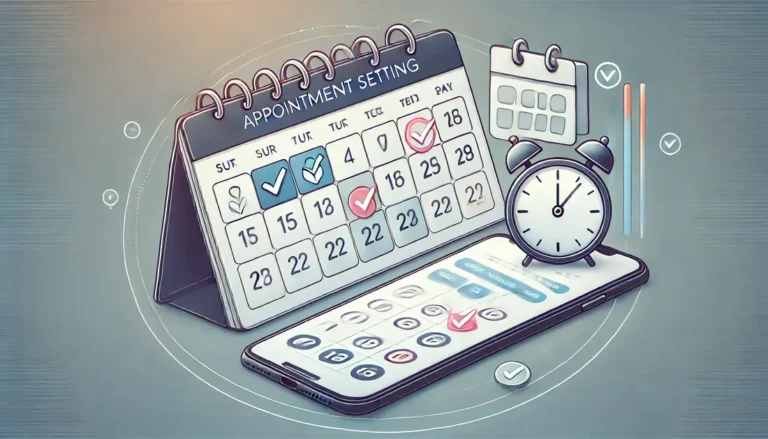Call center burnout is a significant challenge that affects many customer service representatives, leading to decreased productivity, higher turnover rates, and lower morale.
Addressing this issue is crucial for maintaining a healthy and efficient workforce. In this article, we’ll explore effective strategies to help avoid call center burnout, ensuring your team stays motivated and engaged.
How to Avoid Call Center Burnout?
Working in call centers is tough. So many calls to handle, so many repetitive questions, and callers getting angry, all make call center agents unhappy and tiring. This isn’t good at all for the agents, call centers, and callers at the same time. So, there has to be some way to avoid these tiring and unhappy moments.
Here are some tips to avoid call center burnout this year:
1. Offer Comprehensive Training Programs
Comprehensive training programs equip call center agents with the skills and knowledge they need to perform their duties effectively.
Training in areas such as stress management, technical skills, and customer service techniques can help employees feel more confident and less stressed. Ongoing learning opportunities keep the job interesting and engaging.
2. Encourage Regular Breaks
Regular breaks throughout the workday are essential for preventing burnout. Short breaks allow employees to rest and recharge, improving their focus and performance. Implementing policies that ensure agents take their legally mandated breaks can make a significant difference in their overall well-being.
3. Provide Emotional Support Resources
Emotional support resources, such as access to counseling and mental health services, are crucial for helping call center agents cope with the pressures of their jobs.
Providing debriefing sessions after particularly challenging calls can also help employees process their emotions and reduce stress.
4. Create a Positive Work Environment
A positive work environment fosters a culture of support and collaboration, which can significantly reduce burnout. Encouraging open communication, recognizing achievements, and promoting teamwork can create a more enjoyable and less stressful workplace.
5. Promote Work-Life Balance
Promoting work-life balance is essential for preventing burnout. Encourage employees to disconnect from work during their off-hours and support them in pursuing hobbies and interests outside of work. Company policies that allow for flexible scheduling, remote work, and adequate time off can greatly contribute to a healthier work-life balance.
6. Recognize and Reward Efforts
Recognition and rewards are powerful tools for preventing burnout. Regularly acknowledging and celebrating employees’ efforts and achievements can boost morale and motivation. Implementing a structured recognition program that includes both formal and informal rewards can make employees feel valued and appreciated.
7. Offer Career Development Opportunities
Providing career development opportunities can help reduce burnout by giving employees a sense of purpose and direction. Offering training programs, mentorship, and clear paths for advancement can motivate call center agents to invest in their roles and see a future within the company.
8. Utilize Technology to Ease Workload
Utilizing technology to streamline workflows and automate repetitive tasks can significantly reduce the workload on call center agents. Implementing tools such as AI-powered chatbots and customer relationship management (CRM) systems can help agents handle customer queries more efficiently and reduce stress.
9. Implement Regular Feedback Sessions
Regular feedback sessions are crucial for maintaining open communication between management and employees. These sessions provide an opportunity for agents to express their concerns, receive constructive feedback, and discuss their performance. Effective feedback can help employees feel supported and motivated to improve.
10. Ensure Adequate Staffing Levels
Adequate staffing levels are essential to prevent burnout. Overworked agents are more likely to experience stress and fatigue. Regularly assessing staffing needs and hiring additional agents as necessary can ensure that workloads remain manageable and employees are not overburdened.
11. Provide Health and Wellness Programs
Health and wellness programs can play a significant role in reducing burnout. Offering initiatives such as gym memberships, yoga classes, and wellness workshops can help employees manage stress and improve their overall well-being. Encouraging healthy habits and providing resources for physical and mental health can create a more resilient workforce.
12. Foster Team Building and Social Activities
Team building and social activities can strengthen relationships among call center agents and create a sense of camaraderie. Organizing regular team outings, social events, and team-building exercises can help employees bond and reduce stress. A strong support network at work can make challenging days more manageable.
13. Improve Communication Channels
Effective communication is key to preventing burnout. Ensuring that employees have clear and open channels of communication with management and their peers can help address issues before they escalate. Regular team meetings, one-on-one check-ins, and an open-door policy can foster a culture of transparency and support.
14. Monitor Workloads and Performance Metrics
Monitoring workloads and performance metrics can help identify potential burnout risks. Using tools to track call volumes, handle times, and employee performance can provide insights into how workloads are distributed. Addressing any imbalances promptly can prevent employees from becoming overwhelmed.
15. Address Workplace Bullying and Harassment
Workplace bullying and harassment can have a severe impact on employee mental health. Implementing strict policies against bullying and providing training on respectful workplace behavior can help create a safe and supportive environment. Ensuring that employees know how to report incidents and feel confident that their concerns will be addressed is crucial.
16. Provide Access to Mental Health Days
Offering mental health days as part of your leave policy can give employees the time they need to rest and recover from stress. Encouraging the use of these days without stigma can help employees feel supported in taking care of their mental health. Clear communication about the availability and purpose of mental health days is important.
17. Encourage Employee Autonomy
Giving employees more autonomy in their roles can increase job satisfaction and reduce stress. Allowing agents to make decisions about how they handle calls and manage their time can empower them and foster a sense of ownership over their work. Autonomy can lead to increased motivation and reduced burnout.
18. Conduct Regular Stress Assessments
Regular stress assessments can help identify early signs of burnout and address them proactively. Using surveys, interviews, and other assessment tools can provide insights into the stress levels of call center agents. Based on the findings, targeted interventions can be implemented to support employees.
19. Create a Clear Career Path
Creating a clear career path for call center agents can reduce uncertainty and stress. Providing information about potential career progression, required skills, and available opportunities can give employees a sense of direction and motivation. Clear communication about career development can help employees feel more secure and engaged in their roles.
20. Implement Flexible Work Schedules
Flexible work schedules can greatly reduce stress for call center agents. By allowing employees to choose their shifts or work remotely, they can better balance their personal and professional lives.
This flexibility not only improves job satisfaction but also boosts productivity as employees are less likely to feel overwhelmed.
Conclusion
Preventing call center burnout requires a comprehensive approach that addresses various aspects of the work environment and employee well-being. By implementing these 20 strategies, call center managers can create a healthier, more supportive workplace where employees feel valued, motivated, and equipped to handle the challenges of their roles. Prioritizing the well-being of call center agents is not only beneficial for the employees but also for the overall success and productivity of the call center.






![Salesforce Call Center Overview [2024]](https://biglysales.com/wp-content/uploads/2024/10/Salesforce-Call-Center-Overview-2024-768x439.webp)

